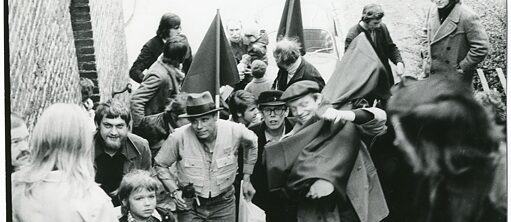Joseph Beuys at 100
The 12th of May would have been Joseph Beuys’ 100th birthday. It is time to look back and examine the legacy of the artist who profoundly challenged our concept of art and its relation to life, politics, and the environment. To mark the centenary, we will show the documentary Beuys by renowned filmmaker Andres Veiel and present a conversation between British artist and writer David Beech and Catherine Nichols, one of the artistic directors of beuys 2021, a year-long programme of exhibitions and events taking place in Germany.
In his work and thought, Joseph Beuys (12.5.1921 – 23.1.1986) explored many questions that seem to particularly resonate with our current moment. For him, the creative process was a revolutionary act which everyone could participate in and shape. “Everyone is an artist” was his famous claim that challenged artistic hierarchy and authority as well as the separation of art and life. Beuys was a sculptor, painter, performer, shaman, activist, political campaigner, and teacher—to name but a few of the myriad roles through which he interacted with the people around him. Interaction, whether through forming grassroots political groups, a creative and experimental university run independently of the state, or through public performances and debates was key to his practice. One of his most famous projects, 7000 Oaks – Urban forest instead of city administration (7000 Eichen – Stadtverwaldung statt Stadtverwaltung), carried out between two documenta exhibitions (1982 – 1987), long predated current debates around the climate and ecological emergency. The project Beuys’ Acorns (4 May – 14 November 2021, Tate Modern) by British artists Ackroyd & Harvey does not only reference Beuys’ project in the title but actually includes 100 trees grown form acorns collected in Kassel in 2007. His influence may not always be as tangible but, we hope, will become apparent in the film and conversation we present.
-
12.05.
- 15.05.2021 -
14.05.
